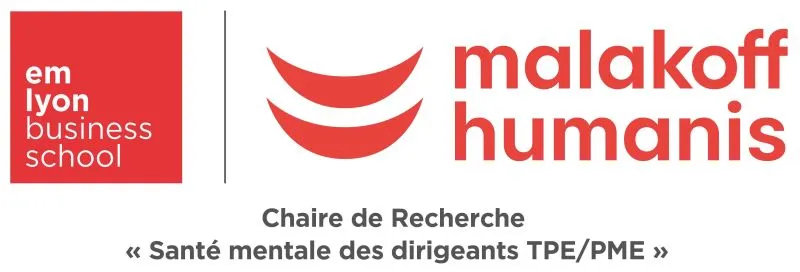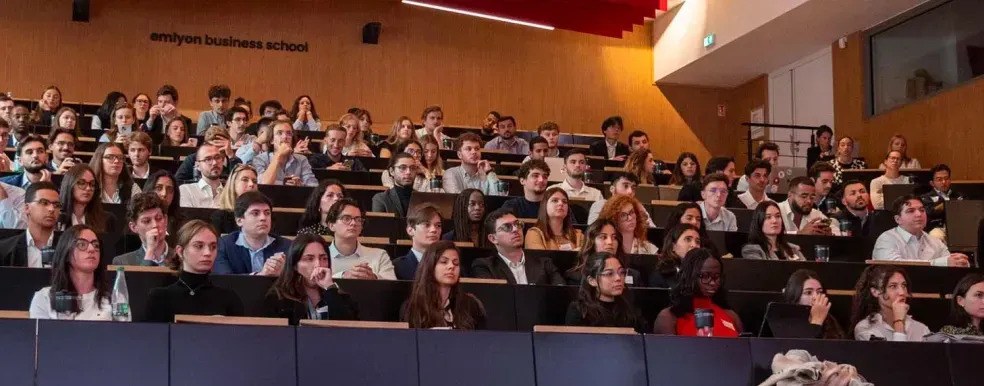Research in health & Chair
Research
Our research aims to inform the scientific conversation, as well as economic and social debates on a large range of topics, such as the determinants of healthcare demand (for example, the insurance behavior of individuals), supply side issues (optimization of medical supply chains and logistics, management accounting in hospitals), workplace health and wellbeing (engagement and mental health of employees and managers), and R&D challenges (such as the application of artificial intelligence to biology) for the dissemination of new drugs and vaccines.

Recent scientific publications
- Baillon A., O'Donnell O., Quimbo S., van Wilgenburg K., 2022, “Do time preferences explain low health insurance take-up?,” Journal of Risk and Insurance, vol. 89:4, 951-983.
- Baillon A., Capuno J., O'Donnell O., Tan C. A. Jr., van Wilgenburg K., 2022, “Persistent effects of temporary incentives: Evidence from a nationwide health insurance experiment," Journal of Health Economics, vol 81, 102580.
- Baillon A., Kraft A., O'Donnell O., van Wilgenburg K., 2022, “A behavioral decomposition of willingness to pay for health insurance,” Journal of Risk and Uncertainty, vol 64:1, pp. 43-87.
- Ramzy G. M., Norkin M., Koessler T., Voirol L., Tihy M., Hany D., McKee T., Ris F., Buchs N., Docquier M., Toso Ch., Rubbia-Brandt L., Bakalli G., Guerrier S., Huelsken J. and Nowak-Sliwinska P., 2023, “Platform Combining Statistical Modeling and Patient-Derived Organoids to Facilitate Personalized Treatment of Colorectal Carcinoma,” Journal of Experimental & Clinical Cancer Research, Vol. 42, article number 79.
- Miglioli C., Bakalli G., Orso S., Karemera M., Molinari R., Guerrier S., and Mili N., 2022, “Evidence of Antagonistic Predictive Effects of miRNAs in Breast Cancer Cohorts Through Data-Driven Networks,” Scientific Reports, 12(5166), pp. 1-16.
- Parisi N., Janier-Dubry A., Ponzetto E., Pavlopoulos Ch., Bakalli G., Molinari R., Guerrier S., and Mili, N., 2021, “Non Applicability of Validated Predictive Models for Intensive Care Admission and Death of COVID-19 Patients in a Secondary Care Hospital in Belgium,” Journal of Emergency and Critical Care Medicine, 5(22), pp. 1-13.
- David R., Evans R., Fraser H., 2021, “Modelling Prenatal Care Pathways at a Central Hospital in Zimbabwe,” Health Services Insights, 14: 13 p.
- Zad, Z., Bonecker, S., Wang, T., Zalcberg, I., Stelzer, G. T., Sabioni, B., Gutiyama, L. M., Fleck, J. L., Paschalidis, I. Ch., 2024, “Prediction of deep molecular response in chronic myeloid leukemia using supervised machine learning models,” Leukemia Research, 141, 107502.
- Fleck J. L., Hooijenga D., Phan R., Xie X., Augusto V., Heudel P.-E., 2023, “Adjuvant therapeutic strategy decision support for an elderly population with localized breast cancer: A monocentric cohort retrospective study,” PLoS ONE, 18(8): e0290566.
- Becker, L., Fischer, F., Fleck, J. L., Harland, N., Herkommer, A., Stenzl, A., Aicher, W.K., Schenke-Layland, K., Marzi, J., 2022, “Data-driven identification of biomarkers for in situ monitoring of drug treatment in bladder cancer organoids,” International Journal of Molecular Sciences, 23, 6956.
- Ma, P., Gong, Y., & Jin, M., 2019, “Quality efforts in medical supply chains considering patient benefits,” European Journal of Operational Research, 279(3), 795-807.
- Hong, Z., Li, Y., Gong, Y., & Chen, W., 2022, “A data-driven spatially-specific vaccine allocation framework for COVID-19,” Annals of Operations Research, 1-24.
- Chen, W. A., De Koster, R. B., & Gong, Y., 2021, “Performance evaluation of automated medicine delivery systems,” Transportation Research part E: Logistics and Transportation Review, 147, 102242.
- Seppälä, P., Harju, L. K., Virkkala, J., & Hakanen, J. J., 2023, “Is boredom at work bad for your health? Examining the links between job boredom and autonomic nervous system dysfunction,” Stress and Health. https://doi.org/10.1002/smi.3326
- Harju, L. K., Seppälä, P., & Hakanen, J. J., 2023, “Bored and exhausted? Profiles of boredom and exhaustion at work and the role of job stressors,” Journal of Vocational Behavior, 144, https://doi.org/10.1016/j.jvb.2023.103898
- Harju, L. K., Van Hootegem, A., & De Witte, H., 2022, “Bored or burning out? Reciprocal effects between job stressors, boredom and burnout,” Journal of Vocational Behavior, 139, https://doi.org/10.1016/j.jvb.2022.103807
- Jaotombo F., Adorni L., Ghattas B., Boyer L., 2023, “Finding the best trade-off between performance and interpretability in predicting hospital length of stay using structured and unstructured data,” PLOS ONE, 18(11): 22 p.
- Jaotombo F., Pauly V., Fond G., Orleans V., Auquier P., Ghattas B., Boyer L., 2023, “Machine-learning prediction for hospital length of stay using a French medico-administrative database,” Journal of Market Access & Health Policy, 11 (1): 11 p.
- Jaotombo F., Pauly V., Auquier P., Orleans V., Boucekine M., Fond G., Ghattas B., Boyer L., 2020, “Machine-learning prediction of unplanned 30-day rehospitalization using the French hospital medico-administrative database,” Medicine, 99(49): 7 p.
- Barigozzi, F., Jelovak, I., 2020, “Research funding and price negotiation for new drugs,” Health Economics, 29 (S1), pp. 83-96.
- Jelovak, I., Kembou Nzale, S., 2020, “Regulation and altruism,” Journal of Public Economic Theory, 22(1), pp. 49-68.
- Houy, N., Jelovak, I., 2019, “Comparing approval procedures for new drugs,” The World Economy, 42(5), pp. 1598-1619.
- Liu, X., Zhou, Y., Wang, Z., Kumar, A., Biswas, B, 2024, “Disease topic modeling of users' inquiry texts: A text mining-based PQDR-LDA model for analyzing the online medical records,” IEEE Transactions on Engineering Management, 71, pp. 6319-6337.
- Liu, X., Zhou, Y., Wang, Z., Wang, W., Kumar, A., Wei, W, 2023, “User's cognitive-behavior-based preference access under disease-specific online medical inquiry text mining,” IEEE Transactions on Engineering Management, 70(8) pp. 2827-2845.
- Pal, S., Biswas, B., Gupta, R., Kumar, A., Gupta, S., 2023, “Exploring the factors that affect user experience in mobile-health applications: A text-mining and machine-learning approach,” Journal of Business Research, 156, 113484, pp. 1-15.
- Malik S., Valdebenito S., D'Amico D., Prideaux B., Eugenin E.A., 2021, “HIV infection of astrocytes compromises inter-organelle interactions and inositol phosphate metabolism: A potential mechanism of bystander damage and viral reservoir survival,” Progress in Neurobiology, 206:102157.
- Valdebenito S., Malik S., Luu R., Loudig O., Mitchell M., Okafo G., Bhat K., Prideaux B., Eugenin E.A., 2021, “Tunneling nanotubes, TNT, communicate glioblastoma with surrounding non-tumor astrocytes to adapt them to hypoxic and metabolic tumor conditions,” Scientific Reports, 11(1):14556.
- Gopalakrishnan R.M., Aid M., Mercado N.B., Davis C., Malik S., Geiger E., Varner V., Jones R., Bosinger S.E., Piedra-Mora C., Martinot A.J., Barouch D.H., Reeves R.K., Tan C.S., 2021, “Increased IL-6 expression precedes reliable viral detection in the rhesus macaque brain during acute SIV infection,” JCI Insight, 6(20): e152013.
- Morinière, A., 2023, “Ethical implications of acceleration: Perspectives from health professionals,” Journal of Business Ethics, 188(4), 741-758.
- Morinière, A., and Georgescu, I., 2022, “Hybridity and the use of performance measurement: facilitating compromises or creating moral struggles? Insights from healthcare organizations,” Accounting, Auditing & Accountability Journal, 35(3), 801-829.
- Morinière, A., Baldé, M., Giordano, S., and Villesèque-Dubus, F., 2022, Chapitre 2. “Repenser le pilotage des hôpitaux publics français au regard de la crise de la Covid-19 ,” Reporting et pilotage des organisations pour une société résiliente, Éd. EMS, Management & société, 49-61
- Sayre, G. M. & Conroy, S. A, 2024, “The other side of the coin: An integrative review connecting pay and health,” Journal of Applied Psychology, https://doi.org/10.1037/apl0001151
- Sayre, G. M., 2023, “The costs of insecurity: Pay volatility and health outcomes,” Journal of Applied Psychology, 108(7), pp. 1223-1243.
- Sayre, G. M., Grandey, A. A., & Chi, N.-W., 2020, “From cheery to “cheers”? Regulating emotions at work and alcohol consumption after work,” Journal of Applied Psychology, 105(6), pp. 597-618.
- Manirakiza A., Malaka C., Mossoro-Kpinde H.D., Yambiyo B.M., Mossoro-Kpinde C.D., Fandema E., Niamathe Yakola C., Doyama-Woza R., Kangale-Wando I.M., Kosh Komba J.E., Nzapali Guiagassomon S.M.B., Namsenei-Dankpea L.J.G., Coti-Reckoundji C.S.G., Bouhouda M., Gody J.C., Grésenguet G., Vernet G., Vernet M.A., Nakoune E., 2023, “Seroprevalence of anti-SARS-CoV-2 antibodies before and after implementation of anti-COVID-19 vaccination among hospital staff in Bangui, Central African Republic,” PLOS Global Public Health, 3(11): e0001497.
- Mbrenga F., Nakouné E., Malaka C., Bourner J., Dunning J., Vernet G., Horby P., Olliaro P., 2022, “Tecovirimat for Monkeypox in Central African Republic under Expanded Access,” New England Journal of Medicine, 387(24), pp. 2294-2295.
- Wiens K.E., Jauregui B., Arnold B.F., Banke K., Wade D., Hayford K., Costero-Saint Denis A., Hall R.H., Salje H., Rodriguez-Barraquer I., Azman A.S., Vernet G., Leung D.T., 2022, “Building an integrated serosurveillance platform to inform public health interventions: Insights from an experts' meeting on serum biomarkers,” PLOS Neglected Tropical Diseases, 16(10): e0010657.
- Billette de Villemeur E., Scannell J. W., Versaevel B., 2022, “Biopharmaceutical R&D outsourcing: Short-term gain for long-term pain?,” Drug Discovery Today, 27(11), pp. 1-7.
- Billette de Villemeur E., Dequiedt V., Versaevel B., 2021, “Pool patents to get COVID-19 vaccines and drugs to all,” Nature, 591, p. 529.
- Billette de Villemeur E., Versaevel B., 2019. “One lab, two firms, many possibilities: On R&D outsourcing in the biopharmaceutical industry,” Journal of Health Economics, 65, pp. 260-283.
Chair
- Mental health in SMEs- VSBs Executive Directors
The objective if the chair is to explore mental health in directors, its representations and consequences, in the world of SMEs and VSBs. This context is characterized by the central position of their directors, together with the absence of operational managers (Human Resources manager, Head of Security & Prevention...). Therefore, the question of mental health falls back onto directors, for themselves as well as for their staff.


We know that constant pressure, complex challenges and greater responsibilities can have a deep impact on mental well-being. That is why we have decided to partner with emlyon, a state-of-the-art institution in terms of research on health and well-being at work, to conduct research works and develop concrete resources aiming at supporting mentally fragile executive directors. Directors with a better mental health, just like employees, provide higher performance, are more creative and more resilient. Paying attention to what they have to say and supporting them is necessary for all.






